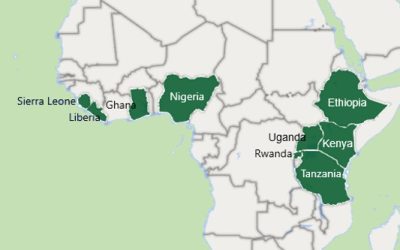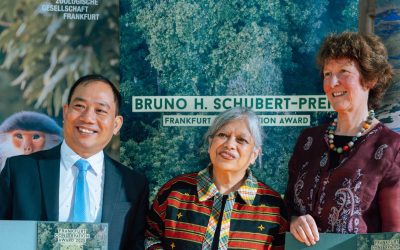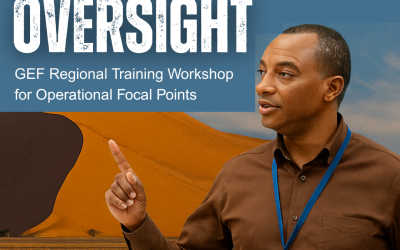Citizen science will have more impact in conservation in Africa thanks to a new collaborative project that the TBA is leading. It brings together the global ornithology organisation, the BTO; the University of Cambridge Museum of Zoology; the National Museums of Kenya, and the Kenya Bird Map Committee.
The project, selected by the Cambridge Conservation Initiative (CCI) Collaborative Fund to receive one of its 2018 grants, will train citizen science leaders in East Africa to analyse and present valuable ecological data that will help in policy and decision-making.
“This successful application has catalysed a new collaboration between the TBA, the BTO and the Museum of Zoology in the UK and the National Museums of Kenya and the Kenyan Bird Map Committee in Africa,” said Dr Rosie Trevelyan, TBA Director. The TBA will bring its capacity building expertise, the BTO is a leader in mapping, developed through bird monitoring, and the Museum of Zoology is experienced in citizen science and community outreach. The Kenyan partners have expertise in mapping birds – and other animals – in the real African context.
Dr Trevelyan is delighted that the project has received CCI Collaborative Fund approval. She said:
“It enables us to deliver capacity building on a much needed topic in Africa, so we know it will have real impact.”
“Citizen science managers will be trained on the first course and then go away and apply what they have learnt before returning to share feedback and develop further expertise on a second training course. This is a far more effective way of building this very technical expertise than if we were to just run one course and then everyone goes home.”
Citizen science is relatively new in Africa, and has tremendous potential to strengthen conservation, both by widening public awareness and interest, and in gathering information. It is currently led by volunteers, many of them working in conservation organisations, but they need training in analysing and presenting the data that they are collecting.
The new collaboration will benefit a range of projects throughout East Africa with input from citizen scientists. They include work on reptiles, mammals and birds, such as the Kenya Bird Map project, which aims to map the current distribution of all the country’s bird species and describe their status.
The new project – which will be rolled out during the first half of 2019 in Kenya – builds on the growing interest in citizen science in Africa, where the TBA has already taken a lead in encouraging wider participation and developing strong leadership. In 2017, the TBA co-organised a pioneering symposium in Kenya, with the UK’s Centre for Ecology and Hydrology, to promote collaboration and good practice.




